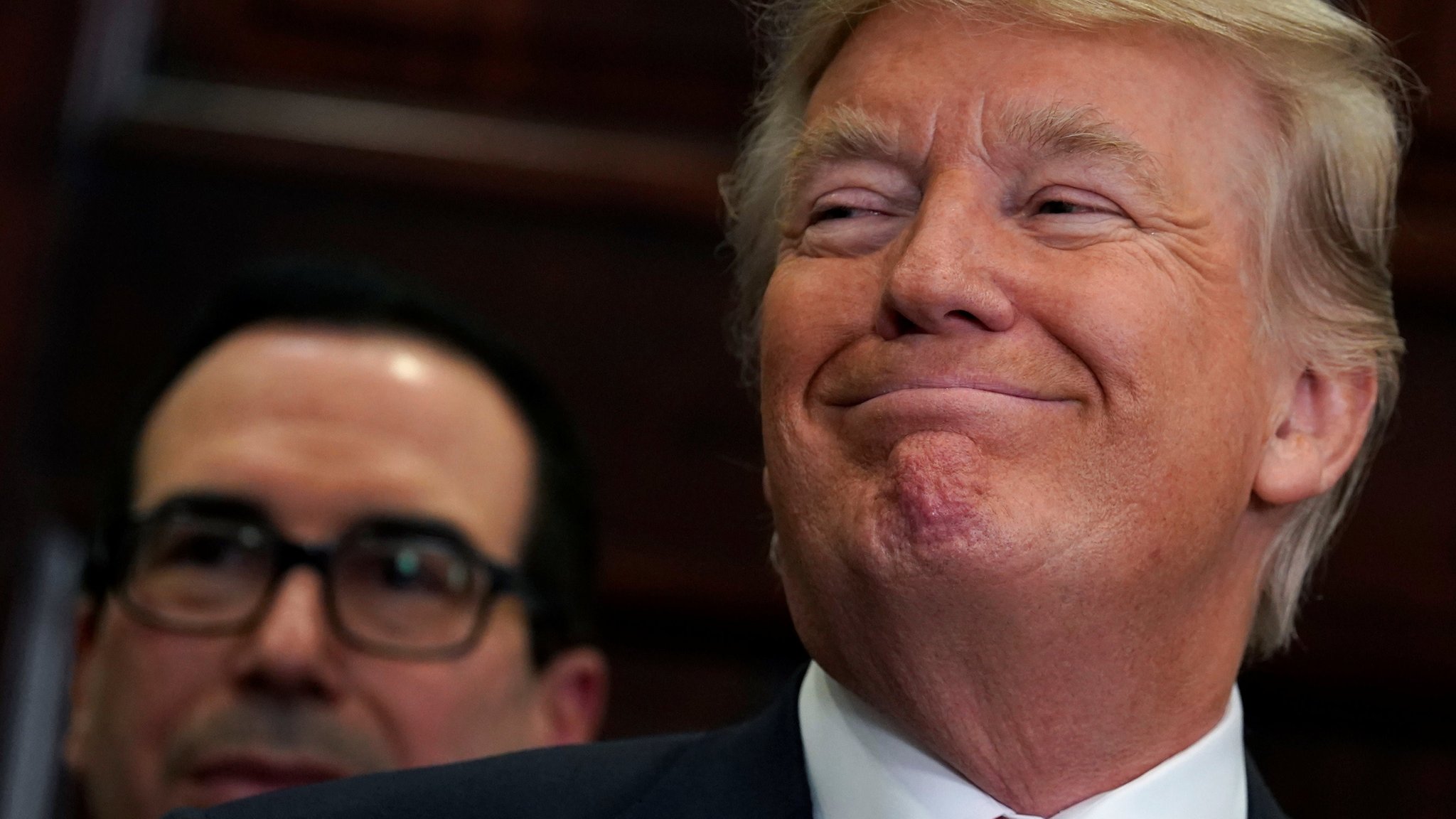

Media playback is unsupported on your device
US President Donald Trump will end subsidies to health insurance providers designed to help low income households, as he continues his attempts to dismantle Obamacare.
The White House announced the move hours after Mr Trump signed an executive order allowing the sale of health insurance plans which are exempt from some of the law’s regulations.
The announcements come after Congress repeatedly failed to repeal Obamacare.
They were instantly criticised.
Democrat Party leaders Nancy Pelosi and Chuck Schumer issued a joint statement denouncing the end of subsidies as a “spiteful act of vast, pointless sabotage” which would harm the poorest citizens.
Meanwhile, critics of the initial announcement argued it could de-stabilise the Obamacare market by encouraging healthy consumers to leave their current plans, prompting a spike in premium costs for older Americans and those with pre-existing conditions.
But Mr Trump says his plans will provide “relief” for people struggling to afford the rising costs, adding that ending the subsidies would “fix” the “imploding” Obamacare, officially known as the Affordable Care Act.
According to a statement from the White House, the subsidies, which run into billions each year, were not legal.
Following advice from the Department of Justice, the statement said, the Department of Health and Human Services “concluded that there is no appropriation for cost-sharing reduction payments to insurance companies under Obamacare”.
Some fear this could sound the death-knell for Barack Obama’s healthcare law, as insurers pull out of the marketplace.
Some within Mr Trump’s own party have also been critical, with Florida’s Republican Representative Ileana Ros-Lehtinen warning it would lead to more people being uninsured.
Speaking to the press earlier on Thursday, Mr Trump said the White House was just “starting the process” of repealing and replacing Obamacare.
His executive order would allow small businesses and some individuals to band together and form associations to sponsor coverage across state lines.
But it also directs federal agencies to consider easing rules allowing small businesses and some individuals to buy cheaper plans with fewer benefits.
The new plans would also lift limits on short-term health insurance plans and circumvent Obamacare regulations requiring “essential health benefits” including maternity care, emergency room visits and mental health treatment.

Media playback is unsupported on your device
The order, however, does not lift the Obamacare individual mandate that requires most Americans to have some form of health insurance or face a tax penalty.
It was unclear when the plans would be available but it is unlikely to affect consumers during the 2018 open enrolment period, which begins on 1 November.
The Trump administration is likely to face legal challenges from medical associations, consumer groups and some insurers who have railed against earlier repeal efforts.
The president added he would continue to press Congress to repeal and replace his predecessor’s signature health bill.
Note: This story is auto-generated from BBC syndicated feed and has not been edited by AFRICA PRIME NEWS